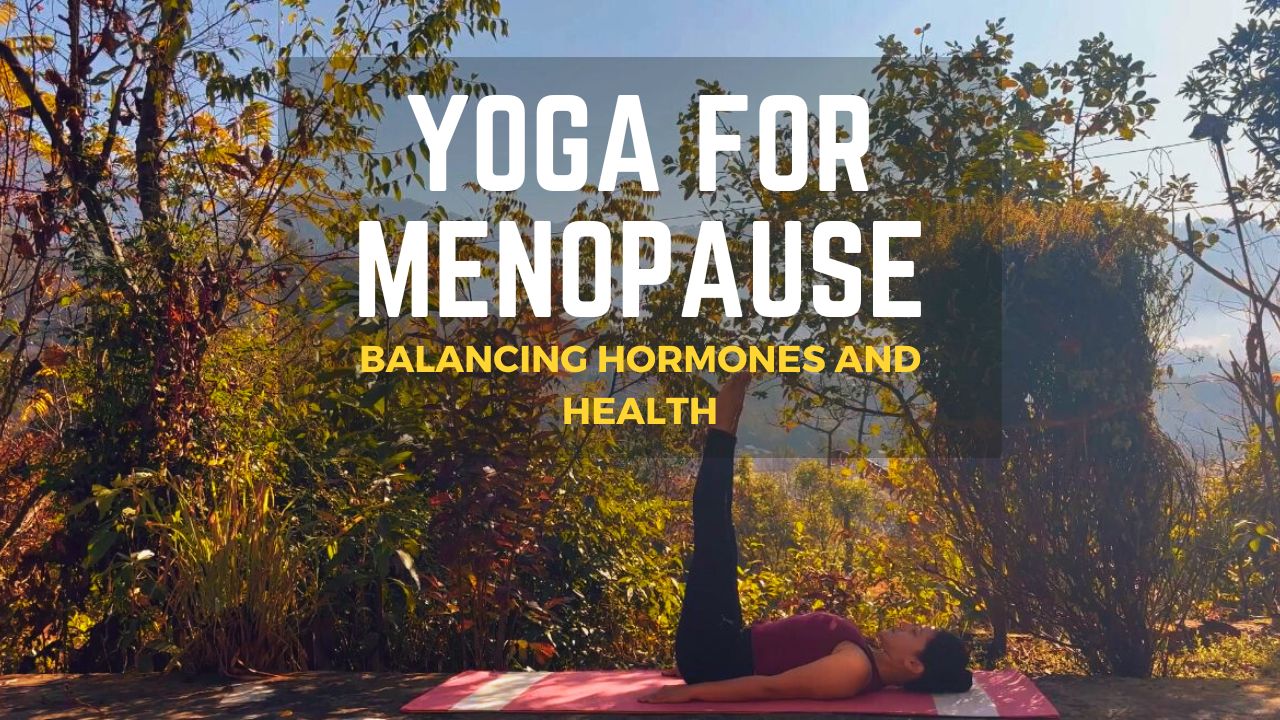Yoga for Menopause: Find Balance and Strength
Menopause marks a significant transition in a woman's life, often accompanied by a range of symptoms that can impact physical health and emotional well-being. While this phase is natural and inevitable, the journey through menopause can be challenging for many women. Fortunately, yoga offers a holistic approach to managing menopausal symptoms, empowering women to navigate this transition with grace and strength.
The Science Behind Yoga and Stress Reduction
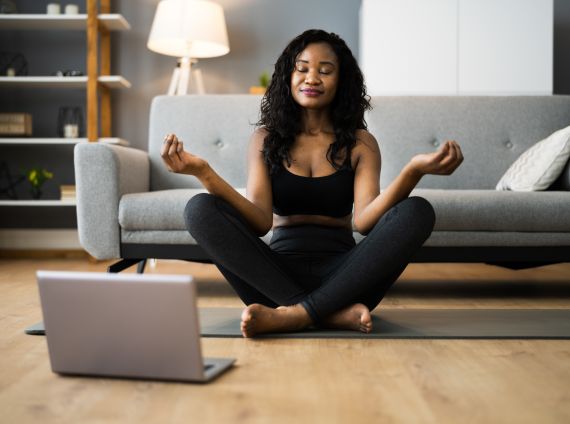
Understanding Menopause
Menopause, typically occurring between the ages of 45 and 55, marks the cessation of menstrual cycles and a decline in reproductive hormones like estrogen and progesterone. This hormonal shift can lead to a variety of symptoms, including hot flashes, mood swings, insomnia, fatigue, and joint pain. While these symptoms are common, they can significantly disrupt daily life and diminish overall quality of life.
Yoga is a time-tested practice that integrates physical postures, breathwork, and mindfulness to promote holistic well-being. When it comes to managing menopausal symptoms, yoga offers several benefits:
The Benefits of Yoga
Beginner Poses for Menopause Relief
1. Hormonal Balance: Certain yoga poses stimulate the endocrine system, helping to regulate hormone levels and promote balance within the body.
2. Stress Reduction: Menopause can be a stressful time, but yoga provides tools to calm the mind, reduce anxiety, and improve overall mental well-being.
3. Improved Sleep: Sleep disturbances are common during menopause, but a consistent yoga practice can promote relaxation and improve sleep quality.
4. Enhanced Flexibility and Strength: Many menopausal women experience a decline in muscle mass and flexibility, but yoga helps maintain strength, flexibility, and mobility.
2. Stress Reduction: Menopause can be a stressful time, but yoga provides tools to calm the mind, reduce anxiety, and improve overall mental well-being.
3. Improved Sleep: Sleep disturbances are common during menopause, but a consistent yoga practice can promote relaxation and improve sleep quality.
4. Enhanced Flexibility and Strength: Many menopausal women experience a decline in muscle mass and flexibility, but yoga helps maintain strength, flexibility, and mobility.
Sukhasana (Easy Pose): Sit cross-legged with a straight spine, focusing on deep breathing to calm the mind and relieve stress.


Balasana (Child’s Pose): Kneel on the floor with toes together, knees apart, and stretch arms forward, resting the forehead on the mat to release tension in the back and hips.
Viparita Karani (Legs-Up-the-Wall Pose): Lie on your back with legs extended upward against a wall, promoting circulation, reducing swelling, and calming the nervous system.
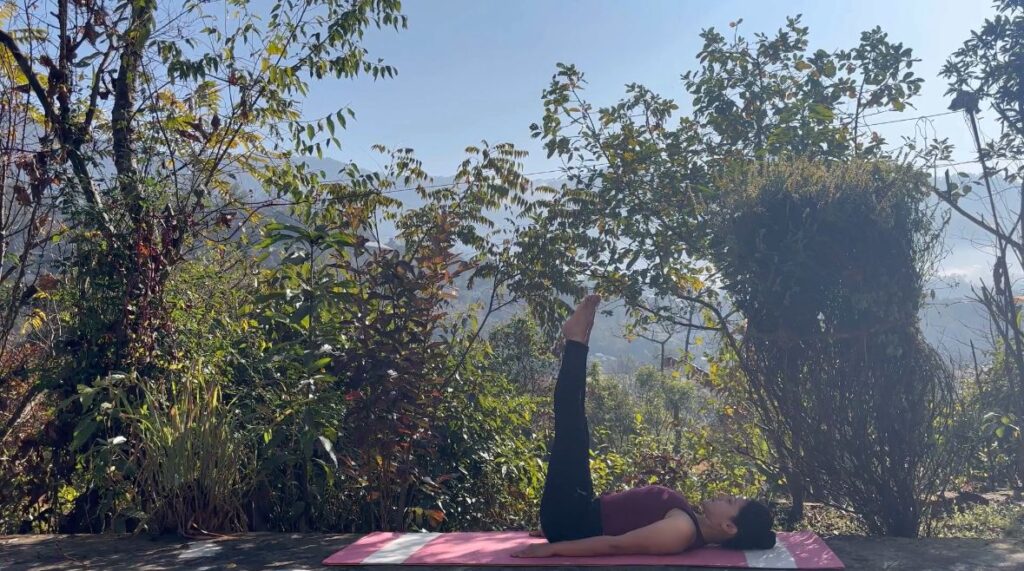
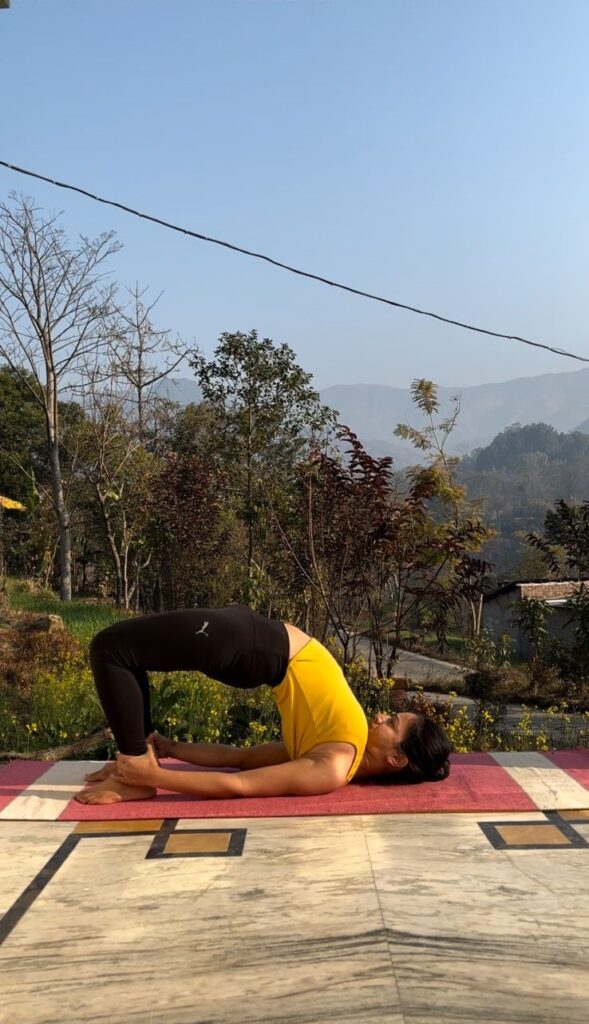
Ustrasana (Camel Pose): Kneel with knees hip-width apart, lean back, and place hands on heels, opening the chest, stretching the spine, and stimulating the thyroid gland.
Setu Bandhasana (Bridge Pose): Lie on your back, bend knees, and lift hips toward the ceiling, engaging the glutes and thighs while opening the chest and shoulders.
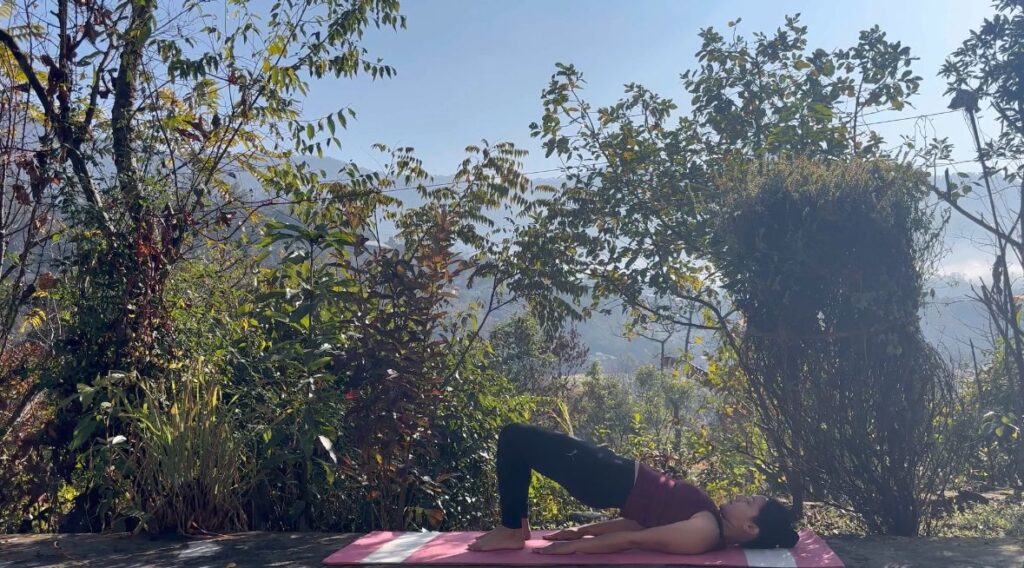
Urdhva Dhanurasana (Upward Bow Pose): Lie on your back, bend knees, place hands beside ears, and lift hips toward the ceiling, opening the chest, shoulders, and hips.
Join our yoga community
Being part of a yoga class or group can provide additional motivation and support. Sharing your practice with others can enhance your commitment and introduce you to new techniques for managing stress.

